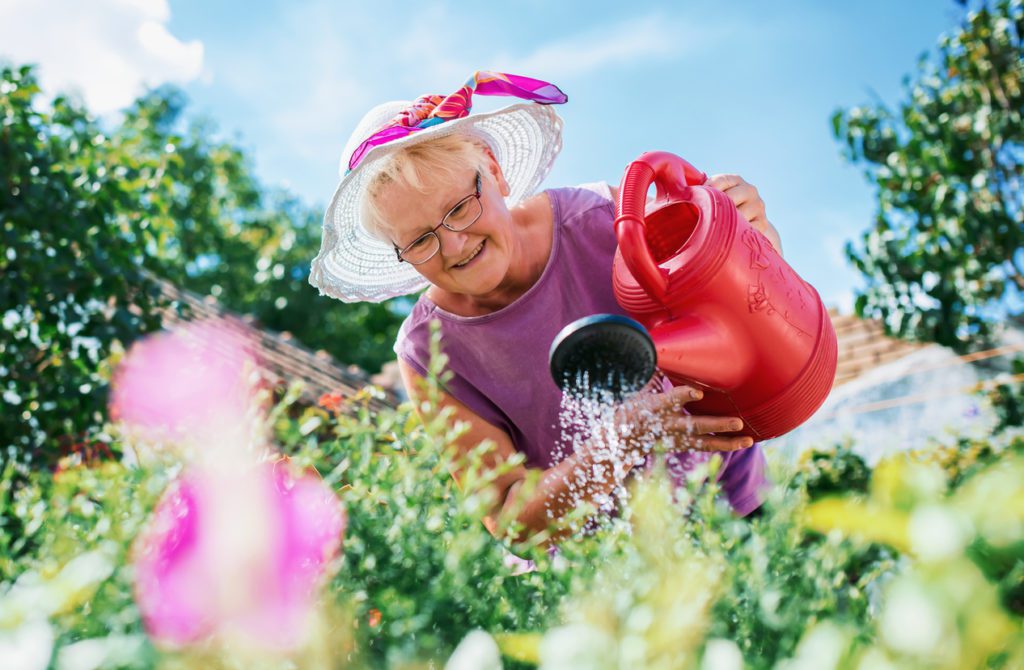Get Ready for Gardening!

While the winter doldrums can affect anyone, seniors are often more prone to seasonal depression because they can’t get out as readily. They also may be dealing with colds or other viruses.
While spring is still a couple of months away, there’s no time like the present to start thinking about what to do once the warmer weather arrives. Caregivers or families of seniors can help get their focus off the cold winter by encouraging them to start planning now for the growing season. Here are a few ideas to get you started:
Look Through a Seed Catalog.
Seed and gardening companies typically start sending out their catalogs in January or February. Help the senior in your life get one; you can sign up via a website’s mailing list or even buy one in a store. Then look through it together to get inspiration. Does s/he love the fresh scent and lovely appearance of flowers? Then concentrate on the flower sections in the catalog. Does s/he like to incorporate healthy vegetables into meals? It might be fun to try growing vegetables together – it’s tough to beat the delicious taste of homegrown produce!
Prepare Compost.
Soil thrives when organic materials are added to it. Gardening efforts will be much more successful if the soil is prepared well ahead of time. Encourage your loved one to develop a simple system of collecting compost materials that will break down and eventually be able to contribute to a fertile garden. This doesn’t have to be difficult; many of the materials are probably already being consumed regularly by the senior. For example, coffee grounds, lettuce, potato peels, avocado skins, banana peels, grass clippings, and even cardboard are all excellent “waste products” to add to a compost bin. When the weather turns warmer, you can help the individual add decomposed compost to the soil in preparation for planting.
Decide Where to Plant Flowers or Vegetables.
If this is the first time the senior has attempted any gardening, help him or her choose the best plot location. Consider the following factors when thinking about location: sunny vs. shady areas, level vs. sloped ground, and soil composition. Certain plants do much better in full sun, while others thrive in shade. If you choose a sloped area for the garden, water may run off too much, leaving the plants dehydrated. If the soil is too acidic, rocky, or formed of clay or sand, it could be challenging for the garden to thrive. The garden area doesn’t have to be large; work with yard space that is available. Herbs, berries, flowers, tomatoes, and other small plants can even be grown in containers on a porch, patio, or window sill.
Plant Seeds in a Mini Indoor Greenhouse.
If your loved one wants to try growing something from a seed, you may want to get him or her set up with a mini indoor greenhouse. This way, the seeds can be planted in late winter or early spring so they are hearty enough to be transplanted once the ground warms up. It can be fun to watch the little seedlings pop up and begin to develop into mature plants. Watering them indoors can be a fun late winter activity. Of course, you can always help the senior buy flowers or vegetable plants in the spring and transplant them into a home garden, if that’s preferred.
Read Books about Gardening.
The local library is a great resource for books on gardening and plant care. Go on an outing to the library with the senior and help him or her pick out suitable books to broaden knowledge about gardening, or select books and bring them to the senior if s/he is homebound. There is no end to the amount of available valuable information about what to add to your garden, how to care for it, how to prevent pests and weeds from ruining it, etc. Read the books together, or help the individual find specific sections that are of interest.
Though it may not feel like it at times, remember that winter does not last forever! Having something to look forward to, such as planting and tending a garden, can help your senior gear up for spring by actively taking steps now to prepare. Gardening is a healthy activity for all ages but can be especially helpful for the elderly, as it’s gentle on the body and increases flexibility and movement.
